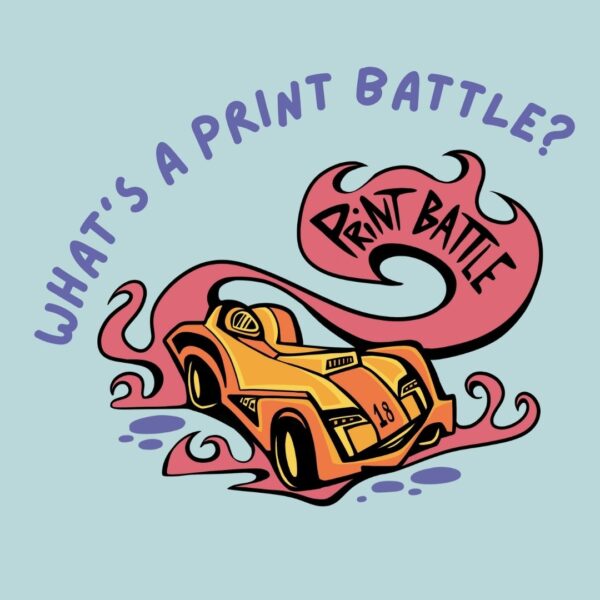In my previous post, I have presented a series of scenes which highlight the enmeshment of humans and nonhumans both on theatrical stages and in the world at large. I have also suggested that such interconnectedness calls into question the pursuit of autonomy and emancipation as it was set up by discourses on modernity and modernism. Today, I will start to expand on that topic by trying to show, in a very concise way, how the modern pursuit of autonomy and emancipation from “Nature†ended up surrounding humans with mirror-images of themselves, eventually making narcissism a condition for modernity.
According to Kant, the Age of Enlightenment was the moment in history when humankind realised that autonomy from nature and free use of reason were its ultimate destiny. However, because thought had limits, Enlightenment was not only a programme aimed at the progressive liberation of reason but also, because of that, a project of critique, of recognising the barriers which thought mustn’t cross if it is to produce valid knowledge. As a result, Kant eventually claimed that, because things in themselves are outside the mind and are only able to be judged once they have been converted into thoughts, thought is only ever able to think thought and never the things outside thought to which thought itself refers.
Following that, it is possible to identify the formation of a double separation of humans from “Nature†in Kant’s project for Enlightenment: not only are humans separated from “Nature†once through the development of their exclusive mental faculties, but those mental faculties themselves, due to the conditions that must be in place for their correct operability, end up producing a second separation, this time a separation of through from world in itself.
It is this twice-enforced divide between human and world that can still be seen today as the epistemological paradigm grounding a great amount of work falling under the academic banner of ‘critical thought’ in the Arts and Humanities, a dominant methodology of scholarly work perhaps better represented by Michel Foucault’s archaeology of knowledge. However, a crucial difference separates Kant from Foucault: whereas the former wanted to map the absolute limits of thought, the latter aimed to demonstrate how knowledge is always indissociable from power in order to then consider the possibility of future epistemological transgressions.
From Feminism to Queer Theory, from Deconstruction to Postcolonial Theory, the critical ethos of the Humanities, much indebted to Foucault’s work, has taken as its job to reflect upon the limits of human knowledge in order to understand how what is taken for granted is in fact produced at the level of discourse through complex articulations of power and knowledge. By focusing on the performative nature of knowledge—how knowledge does rather than is—the critical project seeks to separate the arbitrary from the necessary in order to reveal how realities previously assumed to be universal are instead historically contingent. However, by falling victim to an uncontrollable suspicion of knowledge, contemporary critique ends up betraying itself as the only certainty it allows, the only truth claim it leaves unturned, is the one upon which critique itself depends for its own survival, i.e. the one that posits the historical contingency and performative nature of all knowledge.
The problem is that whereas the critical enterprise had, following the dawn of Modernity, been rightly concerned with calling into question beliefs such as those advanced by various religious doctrines and replacing them with scientifically validated facts, at the start of the 21st century and there being no beliefs left to disprove, criticality has now started targeting objective facts themselves, often by negating their existence or by turning them into a mere product of their dialectical counterpart, the observing human subject and its usage of language. Today, after the so-called ‘objective reality’ was found to always be the result of power-knowledge formations, human discourse has become the true cause of the world itself.
The unfortunate outcome of that phenomenon is clear: while scholars spend their time trying to expose the true conditions of (human) knowledge, the arbitrary nature of everything we know, very real phenomena are having rather real consequences: global warming is happening, the Arctic ice cap is melting, natural resources are diminishing, sea levels are rising, and old and new pandemics are still killing millions (unless you can pay to survive). In short, widespread critique has contributed for society’s inability to act upon issues as pressing as persisting social inequalities or climate change. Furthermore, whereas, in Foucault’s case, for instance, it was a tool of progressive left wing politics, today it has been taken up by right wing conservatives who use it to deny the reality of ongoing ecological disaster and even by fascists like those who insist Auschwitz never happened. In the 21st century, the only thing humanity seems to be able to do is to argue while hoping that one day the cows will eventually come home by themselves.
What we have ended up with is a species obsessed with itself, unable to grasp anything other than its own reality. In good ‘ol Kantian fashion, thought is the only certainty; everything outside of it is just a muddy grey area. And so we are left able to look at nothing other than ourselves: our qualities, our capacities, our politics, our beauty (this latter, I hope to develop in my next post). Like Narcissus stuck by the lake or—better—like Narcissus drown in the lake, drown in itself breathing the water of his own reflection (happily ever after), we keep going until the day comes when, to misquote British poet Peter Reading, after heat waves and after heats deaths we reach absolute zero.
- Performing Ecology, Pt. 2 (Narcissist Modernity) - March 26, 2013
- Performing Ecology, Pt.1 (Introduction) - February 26, 2013





